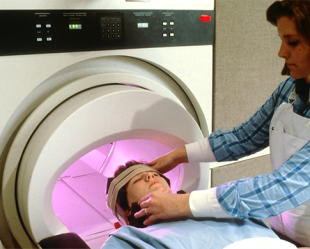This World Metrology Day, the National Standards Authority of Ireland (NSAI) is celebrating how Measurements for Health are helping medical professionals across Ireland to effectively diagnose their patients.
Every day, measuring instruments are used to gauge the state of an individual’s health: It could be a thermometer to determine their body temperature, a monitor to check their heart rate, or a weighing scales to assess their body mass. These tools provide medical professionals with important information about their patient’s physical condition, and in turn help them to decide on an appropriate course of treatment.
A key component of NSAI, the National Metrology Laboratory (NML), located in Glasnevin in Dublin, is the home of measurement in Ireland. NML upholds the integrity, precision, and consistency of crucial measurements like mass, temperature, and height throughout the country. It does so by maintaining the national standards for physical quantity units in line with European and international standards, holding Ireland’s most accurate representations of these units. The laboratory also calibrates a range of measuring instruments to closely match these standards, before they are used in sectors like science, construction, trade, and of course, health.
Recently at the National Metrology Laboratory, the science behind one particular measure of health has been under extensive investigation - blood pressure.
NML has joined nine other National Metrology Institutes (NMIs) in Europe to take part in adOSSIG, a new project to improve the reliability of blood pressure measurements. The EURAMET project was created to meet the need for improved and harmonised metrological checks of blood pressure measurements in Europe.
The project has the potential to make a significant impact all over the world: In Europe alone, hypertension, also known as high blood pressure, is affecting half of the continent’s population. The serious condition is responsible for 22% of heart attacks, and can also increase the likelihood of stroke and kidney diseases.
However, recent studies have shown that Europe’s agreed clinical trial conditions for sphygmomanometers (SMs) – the devices used to measure blood pressure – could be leading to some inaccuracy, with possible consequences of undetected hypertension, or undergoing unnecessary treatment.
The adOSSIG project aims to eliminate this risk of imprecision by developing an advanced Oscillometric Signal Generator (aOSG) to be used in trials in place of human test subjects. The aOSG would produce artificial, human-like blood pressure pulses to test the SM’s capabilities, while reducing the usual margin of error in testing by 70%.
Another goal of the adOSSIG project is to establish a research and competence centre especially for blood pressure metrology. Bringing together international metrological and medical institutions, the producers of SMs and market surveillance bodies, the centre will carry out research and find ways to sustain high standards for blood pressure measurements and their traceability into the future.
“Traceable, accurate measurements are vital to monitoring and maintaining good health – here at NML, we are always delighted to be contributing to such an important part of daily life,” said Paul Hetherington, Head of NSAI’s National Metrology Laboratory.
“We are honoured to be working alongside our European partners on adOSSIG, a project that we hope will have such a positive impact for the medical field, and indeed the lives of so many patients.”
Happy World Metrology Day from NSAI – to learn more about adOSSIG, click here.



